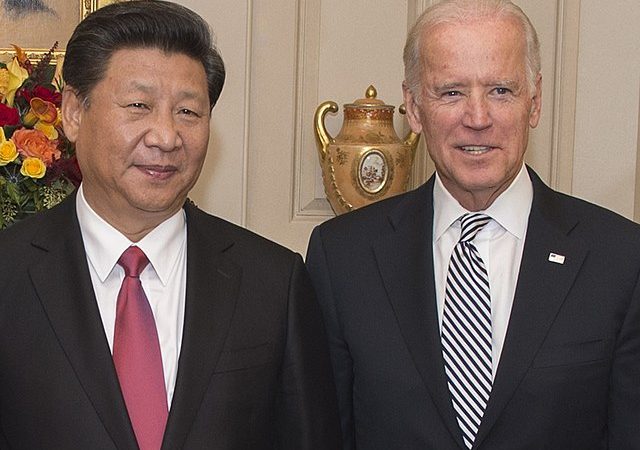By Orçun Göktürk, President of the Turkish-Chinese Belt and Road Institute
The Xi Jinping-Joe Biden meeting was a low-tension meeting and resulted in a few common agreements. Yet, a bright scenario for the future of the relationship does not seem likely.
Undoubtedly, the Biden-Xi meeting was the most anticipated and important bilateral summit of 2023. For much of the year, the two countries were in contention over a range of issues, from US technology sanctions to China’s so-called “spy balloons” and Taiwan. Moreover, a series of events, including allegations from the White House that the emails of US Commerce Secretary Gina Raimondo were hacked by China, further worsened the relations.
Following the relatively warm meeting with Xi, Biden said, “We have returned to direct, open, and clear communication.” However, the meeting also exposed fault lines in US-China relations, and there are very few signs of any progress soon because there are structural unresolved issues in the relations rooted in American hegemony. Biden’s characterization of the US approach to China, as “trust but verify” suggests a deliberate invocation of the Cold War spirit.
The meeting’s circumstances
China-US diplomatic relations, which officially began in 1973, are at an all-time low. The Biden administration, when it came to power, said “the main challenge of the 21st century will be between us and China”. This is a continuation of the strategy focusing on the Asia-Pacific during the Trump era.
However, the Biden administration is facing a challenging period, both domestically and internationally. The much-propagandized “Ukrainian offensive” against Russia by the US media failed, and now there are discussions of reducing aid to Kyiv. The “Aqsa Storm” by Hamas showed that Israel, the US base in Western Asia, is vulnerable, and now the US has to grapple with it. Despite the decision of “focusing on the Asia-Pacific”, its declining power is pushing it to question the sustainability of multifaceted hegemony. Why China’s leadership accepted the meeting at this specific time, can be better understood if one holds all this in mind.
Nevertheless, the US continues to encircle China in the Pacific. A brief look at recent developments in the Asia-Pacific:
– The US expressed plans to open a NATO office in Japan in the middle of this year. Japan’s 2023 military budget was doubled compared to the previous year in proportion to its national income.
– The US opened 7 military bases in the Philippines, including 4 new ones.
– In February 2022, the US sold F-15 fighter jets to Indonesia as a part of a $14 billion deal.
– The US continued its aggressive moves on the Taiwan issue. Last year, Speaker of the House Pelosi visited Taiwan, and in turn, Taiwan’s separatist leader Tsai Ing-wen went to Washington this year.
– In 2021, the US, along with the UK and Australia, formed the “AUKUS”, the nuclearization program for the Pacific. The US administration is seeking to develop the Quad alliance (which includes Japan, India and Australia) by involving South Korea. Biden nominated Kurt Campbell, the White House’s influential Indo-Pacific expert, to be Deputy Secretary of State -a move that would elevate him to the position of the second-ranking US diplomat. Campbell has been serving as the Coordinator for Indo-Pacific Affairs under the National Security Council since January 2021.
– More recently, in October, the US Department of Commerce announced new sanctions on 12 Chinese companies, accusing them of “providing technological support to Russia.” Furthermore, chip exports to China have been significantly restricted. The US has added over 1,300 Chinese entities and individuals to various sanction lists so far, and this list is likely to grow. It can be said that the American sanctions have backfired because China announced the 5G chip P60, a completely domestic product by Huawei.
The concept and limitations of the foreign policy of China
Xi Jinping did not attend the recent UN and G20 summits. So the Xi-Biden meeting was a postponed meeting in a sense. For China, the effects of the post-Mao era foreign policy strategy of “emphasizing economic development while avoiding attention and conflict” are still there. Yet, recent geopolitical shifts and the increasingly hostile attitude of the US, remind China of its necessities. This is why, in 2021, after the US withdrew from Afghanistan, Taliban officials were hosted in the Great Hall of the People in Beijing. And that is why, following face-to-face meetings between Xi Jinping and Iranian President Ebrahim Raisi and Saudi Crown Prince Mohammed bin Salman, the foreign ministers of Saudi Arabia and Iran met in Beijing and decided to resume diplomatic relations that had been suspended for seven years.
Additionally, China has attempted to guide Israel and Palestine towards ending their conflict through a joint development model within the Belt and Road Initiative. However, convincing the Zionist regime to embrace peace doesn’t seem akin to bringing Iran and Saudi Arabia together. This demonstrates the limitations of China’s foreign policy strategy based on “increasing its presence by prioritizing the economy.”
Shift in the international order
Throughout history, all international orders reflect the existing power balances at the time of their first forming. The international order after World War II was an explicit “American order” that took US interests as the center. However, over time, the relative power of states changes, and eventually the international order no longer reflects the real power dynamics among the “Great Powers.” At this point, the legitimacy of the existing order is questioned, and rising powers challenge it. Once a geopolitical shift occurs, rising powers become increasingly dissatisfied with the given order and want to change it. What lays the foundation of structural problems of US-China relations is this.
Likely to become more aggressive
Given the upcoming US presidential elections next year, a moderate relationship with China for Biden is unlikely. In fact, after the Xi-Biden meeting, Republicans on the Senate Foreign Relations Committee accused Biden of not being tough enough on China of yielding to Xi’s demands “in exchange for a series of meaningless working groups.” Biden’s use of the term “dictator” was not a random gaffe; despite Blinken’s disappointment, the beginning of the election campaign of the coming year has been kicked off.
The US Department of Defense would continue provocations through the “Enhanced Defense Cooperation Agreement” with the Philippines and Taiwan. The general elections of next year in Taiwan are crucial, and a defeat for separatists could push the US towards more aggressive moves through the Philippines.
In conclusion, because of its internal economic slowdown -and seeing APEC as an opportunity in this regard- and the responsibility of the presidency of the UN Security Council, China decided to go to the US, also giving the message to the world that “we are not the aggressive side.” The future of US-China relations maintains its character as the main challenge in the geopolitical shift of this century, as Biden stated.









Leave a Reply